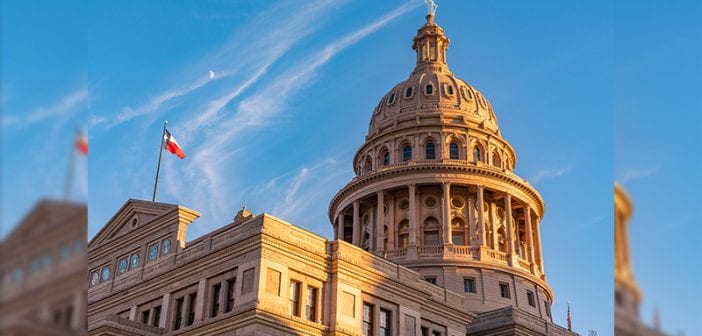A major priority for the Texas Pro-Life movement during the Regular Session of the 86th Legislature is to end funding of the abortion industry with state and local tax dollars. Many Texans falsely presume the state legislature has already fully defunded Planned Parenthood and other abortion providers. However, to accomplish this goal, the Texas Legislature must pass Senate Bill 22 by Senator Donna Campbell (R-New Braunfels) and House Bill 1929 by Representative Candy Noble (R-Lucas), critical defunding bills which would make the temporary Pro-Life funding policies permanent law for state funds. These bills would also extend those Pro-Life restrictions to prohibit cities and counties from contracting with abortion providers or their affiliates.
SB 22 and HB 1929 would:
- Extend the temporary prohibition of state funds going to the abortion industry into permanent state law;
- Stop all state tax dollars from abortion providers and their affiliates;
- Apply strong Pro-Life fiscal policies to local governments like cities, counties, and school districts;
- Include stronger enforcement mechanisms to ensure no contracts, benefits, or tax dollars flow to the abortion industry, intentionally or unintentionally.
The legislation specifically applies to both abortion providers and their affiliates because all tax funding is fungible. Although a grant or payment is designated by the state for one purpose, the additional funding frees up money to subsidize abortions. Furthermore, any contract or grant given to the “clean” side of an abortion business, contributes to their overall value as an organization, grants them advertising in the community, and establishes a consumer to which they can target elective abortions. The priority bills also specify local government funding and contracting to prevent political subdivisions from unfairly favoring the abortion industry. For example, at the end of 2018 the City of Austin gave preferential treatment to Planned Parenthood by giving them a 20-year contract for $1 annual rent, with the potential of extension for another 20 years.
SB 22 and HB 1929 will accomplish two Pro-Life goals: 1) save the lives of preborn Texans and 2) protect taxpayers from funding the deadly abortion industry.
Firstly, Texas Right to Life prioritizes legislation by examining three critical benchmarks for each Pro-Life bill, the first of which is that the bill must actually save the lives of children. The defunding bill will do just that. Studies show that limiting public funding of abortion through measures like the federal Hyde Amendment reduces the rate of abortion. The Hyde Amendment limits the federal government to only funding abortion in very limited circumstances. Since the Hyde Amendment was first passed in 1976, the abortion rate in the United States has decreased by half. Even the pro-abortion Guttmacher Institute found that cutting Medicaid funding led to a drop in the rate of abortion. National examples like this, backed by peer-reviewed studies, allow us to confidently state that this bill will save lives.
Secondly, most Texans are Pro-Life, and the spending of state and local tax funding should reflect this principle. Texas has a legitimate state interest in protecting taxpayers’ consciences from being forced to subsidize an industry that destroys innocent human Life.
Defunding the abortion industry is one of the most straightforward and incremental Pro-Life advances the legislature can pursue. But we not only want to limit abortion, we simultaneously want to say yes to life-affirming health care alternatives that Texas women and families need. There are currently 73 Federally-Qualified Health Centers (FQHC) in Texas located at more than 300 locations across the state that can shoulder any worries about lack of health care should Planned Parenthood lose funding. Texas Right to Life also lobbies for increased funding for alternative health care programs such as Healthy Texas Women and Alternatives to Abortion to ensure women continue to receive the medical and social services they need when they choose Life in difficult circumstances. The funding blocked by this bill from abortion providers and their affiliates can and should be redirected to promote these life-affirming state-funded programs instead.
The State of Texas has already taken steps to cancel Planned Parenthood’s Medicaid contract, citing instances of fraudulent overbilling for services in the millions of dollars and the release of undercover videos showing Planned Parenthood employees plotting to break the law through the sale of fetal body parts for profit. A recent ruling by the United States Court of Appeals for the Fifth Circuit permits the state to temporarily cancel Planned Parenthood’s contract while the legal challenge is ongoing. This reaffirms Texas’s ability to set eligibility requirements for Medicaid providers in Texas. The ruling also provides the state legislature with perfect timing for furthering this principle by permanently enacting a statute disqualifying Planned Parenthood from Medicaid reimbursements.
During the Regular Session of the 85th Texas Legislature, Texas passed the broadest defunding measure yet by prohibiting the state budget from funding abortion providers and their affiliates. However, this prohibition expires with the 2018-2019 budget and must be renewed every session with each new biennial budget. The Texas Legislature needs to codify these provisions in order to permanently end state and local funding of the abortion industry. If passed, this would be the strongest defunding bill in the United States. Defunding of the abortion industry was also explicitly outlined as a legislative priority for this legislative session by the Republican Party at the 2018 State Convention. Under statewide Republican Pro-Life leadership, as well as Republican majorities in both the House and the Senate, Texas lawmakers must protect Texas taxpayers from forced subsidization of an activity they consider immoral and to lead the nation in prohibiting such funding once and for all.



